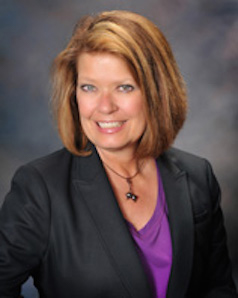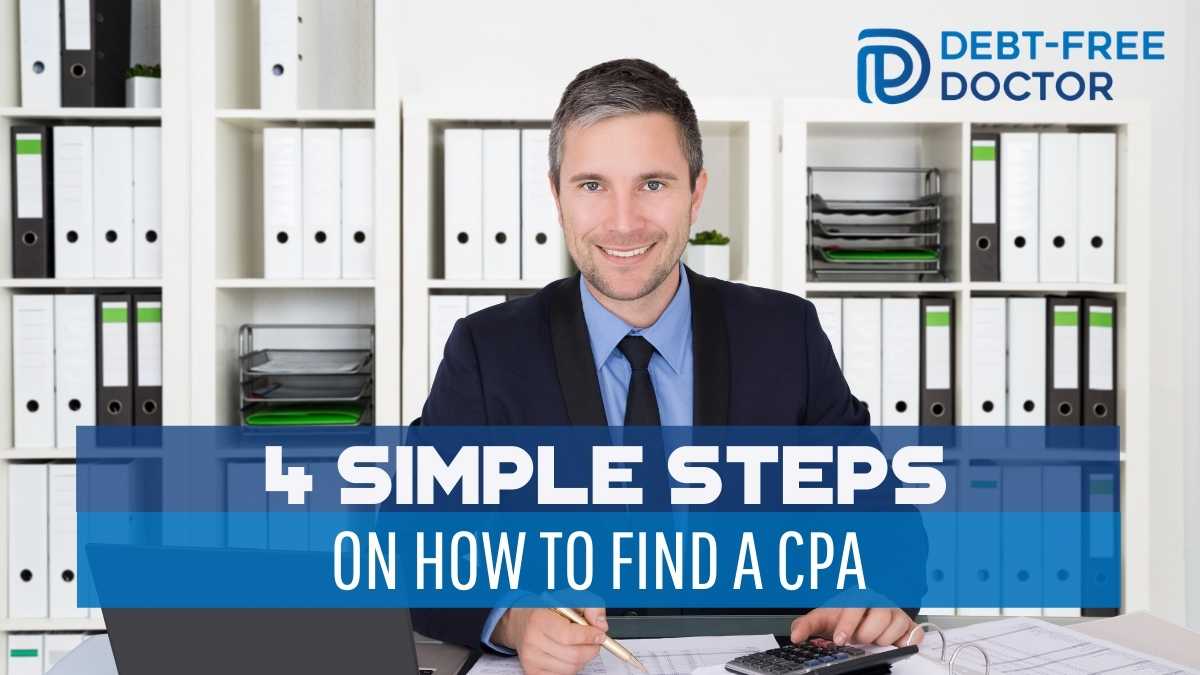When I first got out in practice, I didn’t give much thought to paying taxes (or investing) as I was barely making ends meet. Between working out of multiple dental offices and mowing yards (yes, mowing yards!) tax returns were the least of my worries.
After a few years of networking with other dentists and learning basic marketing skills, the practice began to grow and become profitable. It was at this point that I realized that I needed help by someone that could do more than just file taxes. I was clueless on how to find a CPA (certified public accountant) and began asking other prominent physicians and dentists for recommendations.
One of the most important keys to becoming wealthy is by minimizing taxes. As a high-income professional, your largest annual expense will more than likely be your federal tax bill.
It’s for this reason that one of the most important people that you choose to assist you is a qualified tax professional.
Let’s discuss the best ways to find one….
Who Needs a CPA?
It’s hard these days to stay balanced. With trying to manage a practice, work out and eat healthy, be a good parent, treat your spouse well and be somewhat sociable, who has time to stay up to date with the ever changing tax laws?
I get it. Some folks love doing their own tax returns. Maybe they were an accountant in an earlier life or just love crunching numbers. I love doing yard work as I used to have a lawn service way back when.
Now that I’m older and maybe a bit wiser, focusing on managing/growing the practice works best when I don’t have to worry about preparing and filing tax returns.
Here’s what Johanna Fox Turner, CPA, CFP from Fox & Company Wealth Management has to say about who should hire a CPA:

You should use a CPA if you are a(n):
- Self-employed contractor (get paid by 1099): An expert will take the time to get to know you to uncover planning opportunities that arise when you own a business.
- Investor/owner of S-corporation or Partnership: Basis issues make these filings especially complicated.
- High income earner: You are four times more likely to be audited if you earn over $200k. If your return is marked “self-prepared”, your chances are even higher. AMT (Alternative Minimum Tax) and NIIT (Net Investment Income Tax) are other opportunities for tax planning.
- Real estate investor: passive rental income, sales and like-kind exchanges, and rules of depreciation and capitalization are complicated. Improper reporting can affect your tax liability for years into the future.
- HNW (High Net Worth) taxpayer: If you have investable assets of $1M+, tax compliance issues are likely to be more complicated.
My Dilemma
Up until recently, I had the same CPA that prepared my taxes each year. He’s a good friend of mine in a moderately aggressive group and did a great job.
Out of the blue, he decided to make a career change leaving me starting over finding someone that could also do a good job.
He gave me a few names and I went with the one that the majority of his other doctor/clients were going with.
This new group was known for their “conservatism” but I blew it off and decided to meet with them anyway.
Before our initial meeting, all of the requested information from the previous accounting group was sent over.
The Intro Meeting
We met in a large board room and all of my paperwork was arranged neatly on the conference table. This was a great first impression as I love it when people are prepared.
After introductions were made, he began asking specific questions such as:
- What type of group retirement plan do you administer?
- Are you planning on making any large end-of-the-year purchases for the practice?
- How much debt do you have?
- How do you currently pay your federal taxes?
- Are your kids on the payroll? If so, how much do you pay them?
- Do you have 529 plans in place?
- Do you contribute to a health savings account?
These were great questions but nothing I was currently doing could have been made better (in his opinion.)
We parted ways with a handshake and nothing new to add to the mix. I was just glad I’d found someone to take up the reins so I didn’t have to.
Tax Hike
Fast forward nine months later. What I had been told was right. This new group was not only conservative but ULTRA-conservative.
The year I was with them made going to work miserable. It was totally my fault. I didn’t do my due diligence and paid the price (no pun intended).
Up until that time, I had such an enormous tax bill in my life! No tax reduction planning strategies were offered or recommended during our time together.
I was investing more with Vanguard and collecting more money in the past when the practice wasn’t doing near as well as it was now due to the tremendous increase in income taxes.
I told Mrs. Debt-Free that if this continued, I was going to strongly consider changing careers. There had to be a better way….
Hard To Find
In general, good tax professionals are a busy group. According to recent statistics, fewer people are entering the accounting field. CPAs frequently seek employment in government and large corporations or large accounting firms.
Like many general dentists and physicians, the small and mid-sized accounting practice is a dying breed.
Bottom line: Finding a good tax professional to work with you is getting harder by the day.
Here’s a few steps to help you land a good one.
4 Steps to Find a Good CPA
1) Search For Referrals
Trying to search for a good CPA online can be exhaustive. I tried and actually interviewed a handful. However, there is no way to determine quality with such a shotgun approach.
One interview stands out above all others. I specifically let this person know, beforehand, that the MAIN issue I wanted to address was specific ways to lower my tax bill.
During our Skype interview, this topic was brought up several times but shot down. He seemed to want to talk more about allowing his group to take over my investing and payroll services than developing tax strategies.
This is a good business lesson for all of us. Always, address the patient/customer’s chief complaint before making recommendations.
After interviewing five CPAs, I found one that had specific strategies to lower my tax bill.
The first step you should take in searching for a tax professional is talking with other high-income/net worth individuals. If you’re a dentist, talk to successful dentists. If you’re a surgeon, look for the same. If you have real estate or plan on investing in it in the future, talk with friends that have the same.
Find out why the referrer likes their CPA.
Ask for specifics such as:
- Knowledgeable?
- Good tennis player?
- Returns phone calls immediately?
- Always gets a refund?
- Discusses tax strategies frequently?
2) Make A List (and check it twice!)
I started the process of finding a new CPA late in the year when most were busy making tax projections for the upcoming year.
The earlier you start the better. During the off tax season is the best time to build a relationship with a tax professional.
Once you have your list, begin the process of setting up either phone or face-to-face interviews. I liked the in-office interviews. Not only could I get to meet them personally, but I also was able to see the type of customer service their staff gave to clients.
I’m a big customer service guy. Some people will eat at a restaurant with great food and crappy service. I’ll take the mediocre food with fantastic service any day.
3) The Interview
Once you have your interviews booked, it’s time to develop a list of questions to ask each one.
Don’t make the mistake by first asking, “How much do you charge?”
If you needed LASIK eye surgery, would you call around looking for the lowest price? Probably not. I wouldn’t want the cheapest guy cutting on my eyes. I kinda like to see!
Remember, you get what you pay for.
Here’s a few questions to ask, but feel free to add more as needed:
- Will I meet or correspond with only with you? Work with a team?
- How often do you recommend we meet to discuss and stay on top of the tax situation?
- Do you periodically give tax recommendations throughout the year?
- How long should I expect to wait for a phone call or email to be returned?
- How many other doctor clients do you have?
- What is your average turnaround time in tax season?
- What do you do if you find you’ve made a mistake on a return you prepared for me?
- How would you support me in an IRS audit?
After you’ve asked all of your questions and like what you hear, it’s time to ask the two final ones:
- After reviewing my account, are you willing to take me on as a client?
- Now that you reviewed my tax situation and are able to take me on as a client, how much will my tax return cost to prepare?
4) Background Check
Summary
Finding a great CPA is hard work but worth it in the long run.
Follow these simple steps to getting the advice you need to save your hard-earned money.
When it comes down to it, an accountant can be an invaluable advisor for your practice.
If you want lessons from Keith, an extremely knowledgeable accountant, check out his site over at the Wealthy Accountant.


